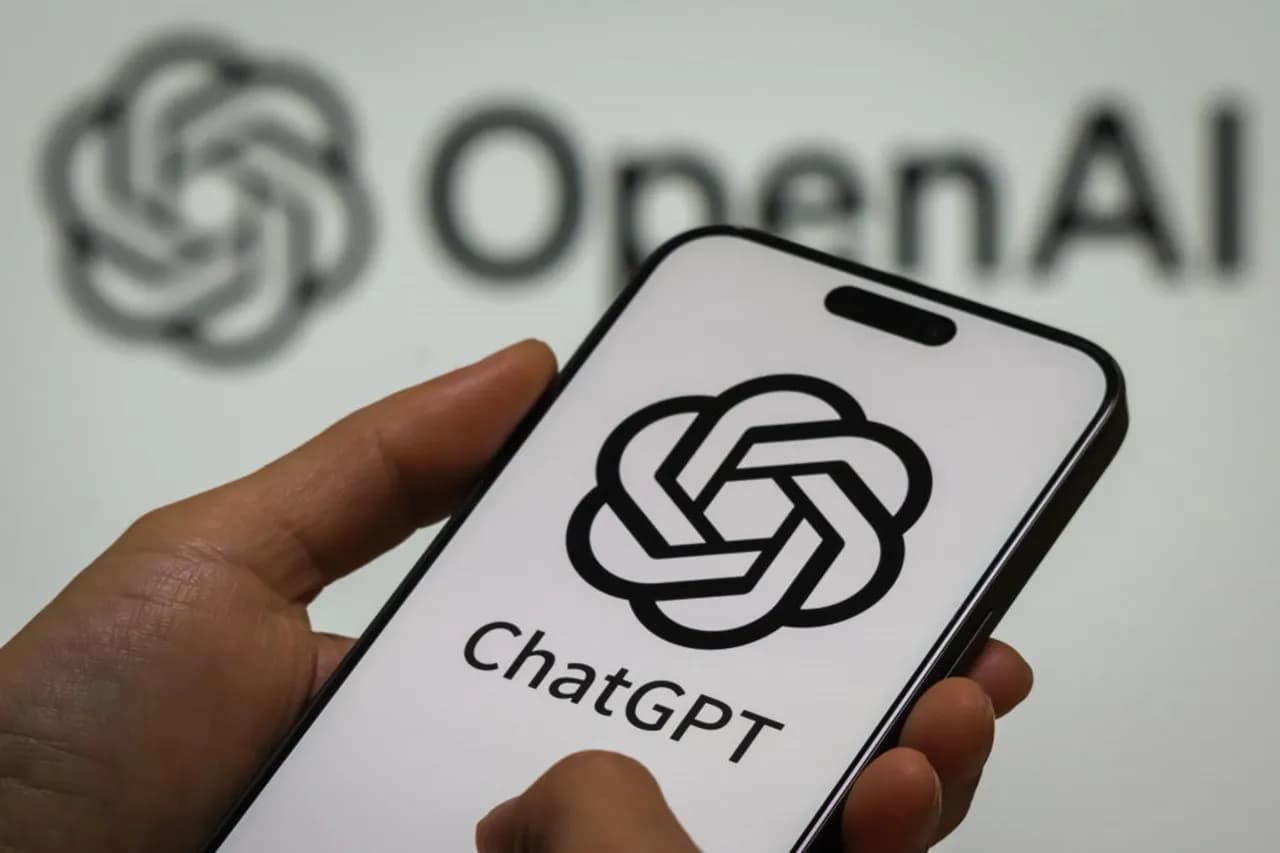We're loading the full news article for you. This includes the article content, images, author information, and related articles.
OpenAI CEO Sam Altman and former Apple designer Jony Ive are developing a personal AI device intended to offer a 'calmer' user experience, signaling a potential paradigm shift in personal computing with implications for Kenya's growing digital economy.

OpenAI CEO Sam Altman and renowned industrial designer Jony Ive have confirmed the development of a new artificial intelligence-powered hardware device, with prototypes finalized and a potential launch within two years. The project, a collaboration between OpenAI and Ive's design firm LoveFrom, aims to create a personal AI companion that offers a more peaceful and less distracting alternative to the modern smartphone.
During a discussion with Laurene Powell Jobs at an Emerson Collective event on Friday, November 21, 2025, Altman described the vision for the device as the antithesis of the current smartphone experience, which he likened to the 'flashing lights' and 'constant noise' of Times Square. The new hardware is intended to foster a calmer interaction, akin to 'sitting in the most beautiful cabin by a lake,' by intelligently filtering information and understanding the user's context.
Details about the device's specific form and function remain scarce, but reports suggest it will be a pocket-sized, screenless gadget. This design choice underscores a strategic move away from the app-centric, notification-driven model that dominates current mobile technology. Instead of demanding constant user attention, the device will leverage OpenAI's advanced AI models to build deep contextual awareness of a user's life, proactively offering assistance and information at the most opportune moments. Jony Ive, the chief architect behind iconic Apple products like the iPhone and iPad, described the design philosophy as pursuing solutions that are 'almost naive in their simplicity.' The goal is a product that is so intuitive it can be used 'almost without thought.'
The venture, operating under the company name 'io Products,' has attracted significant investment, with reports of up to $1 billion in funding sought from backers including SoftBank. OpenAI has also been in discussions to acquire the startup for over $500 million. The project has brought together a team of former Apple hardware veterans, signaling a serious commitment to challenging the established hardware market.
While the device is being developed in Silicon Valley, its eventual launch could have significant ripple effects across the global technology landscape, including in rapidly digitizing markets like Kenya. The nation has identified AI as a strategic priority, launching its National Artificial Intelligence Strategy (2025–2030) to foster innovation and ethical adoption in key sectors such as healthcare, agriculture, and financial services. According to a 2025 report by CIO Africa, AI adoption is a top priority for African organizations, second only to cloud computing.
The introduction of a new category of AI-native hardware could accelerate this trend, creating new opportunities for local developers and entrepreneurs to build services on a new platform. However, it also raises questions about digital inclusion, data sovereignty, and the future of work. The high cost of development and the concentration of AI talent in developed nations risk widening the economic gap, a concern highlighted by the World Bank. As AI automates more tasks, developing economies reliant on labor-based advantages may face significant disruption.
Altman has been vocal about his belief that current hardware, like smartphones, is not the ideal form factor for the future of AI. He envisions a more ambient, proactive, and context-aware form of computing that acts as a true companion. This new device represents OpenAI's ambitious bid to define the next era of human-computer interaction before competitors like Apple and Google can adapt their existing ecosystems. The global market for personal AI assistants is already substantial and projected to grow significantly, with one forecast predicting a market value of $83.66 billion by 2030. The success of this new hardware could determine whether the future of personal technology is an evolution of the smartphone or a complete departure. For Kenya and the broader East African region, staying ahead of this technological curve will be crucial for harnessing the benefits of the AI revolution while mitigating its potential risks.
Keep the conversation in one place—threads here stay linked to the story and in the forums.
Sign in to start a discussion
Start a conversation about this story and keep it linked here.
Other hot threads
E-sports and Gaming Community in Kenya
Active 9 months ago
The Role of Technology in Modern Agriculture (AgriTech)
Active 9 months ago
Popular Recreational Activities Across Counties
Active 9 months ago
Investing in Youth Sports Development Programs
Active 9 months ago